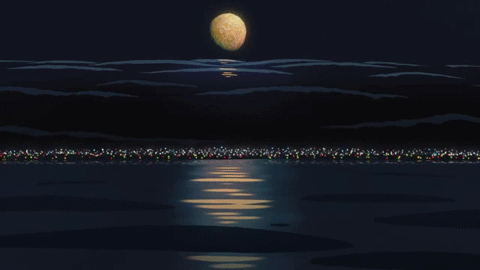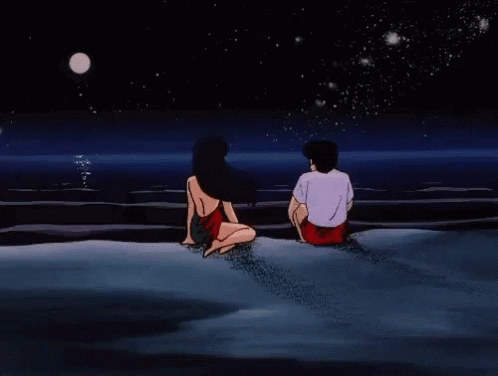Have you seen love, burdening the universe? I watch countless memories efface, Because the moon smiled at the ocean. The FOOLISH OCEAN has been punished, His woe unnoticed, The mortals ruthlessly enthrall in his emptiness, He only wails, He cannot reach the moon the way they have. By: Rakshita Murugan.
A few of my friends asked me about the thought behind the poem; Here it is: Tides: The moon controls the ocean’s moods! ^_^
My inspiration for the poem by was sparked by secondary school geography; In simple terms, the moon controls the wind energy over the surface of the ocean, which in turn steer the directions, and speed of water currents. The moon and the ocean are therefore inextricably connected — My job as a poet is simply to romanticise this ^_^
"Have you seen love, burdening the universe?" When two people are in love, but are separated by distance, their love becomes a burden on them. The love story between the ocean and the moon, however, burdens beyond just them; the "universe" (hyperbolic lexis), because their separation creates a toll on the others. "countless memories efface" The beach is where children build castles, families gather, friends hangout, and lovers stroll. The tides prowling upon the sand, erases the the fruitful memories of many — the memories behind traces of footprints by the shore get destroyed by the waves (in my poem, rather: the turbulent, lovesick ocean). Therefore, the ocean must repent, for the many stories of love that it eroded. "The FOOLISH OCEAN has been punished, His woe unnoticed, The mortals ruthlessly enthrall in his emptiness," These lines serve to expedite the deeper analysis that the ocean has been rightfully punished, by causing his misery to be neglected by other beings. For instance, one way it could be perceived is that you would most often see poets comparing the ocean to positive connotations, seldom paying attention to its sorrow. This neglection makes it impossible for the ocean to receive any form of empathy from others. Furthermore, when the moon is down, the ocean is miserable and empty without the sight of his love (the moon), and in this vulnerable time of the day, his bleakness (low tides, slow currents) is mercilessly trampled upon by human activity (swimming, skiing, etc). The ocean is punished for his mood swings, even despite his broken love story. He is eternally stuck in woe, as he is unable to reach his moon, when even the humans have (ok this is a bit of a stretch, but hey, we're moving to the ocean's perspective sooo). Structure The structure of the poem is irregularly split into 3 unequal stanzas ... But observing it overall, one would realise that (inevitably) they resemble the moving waters upon the beach.





